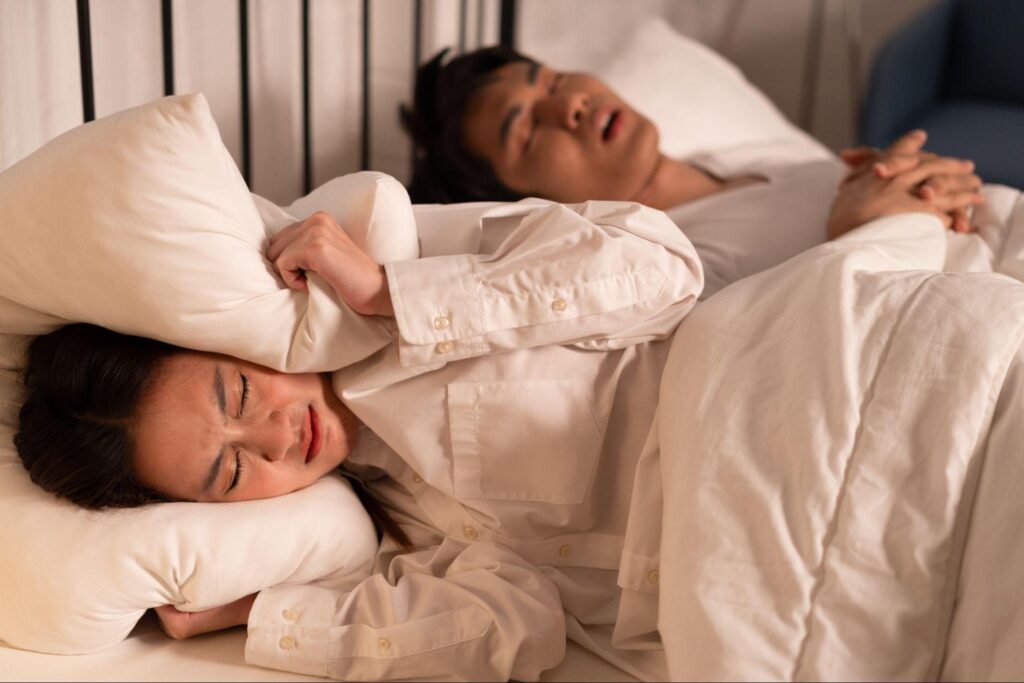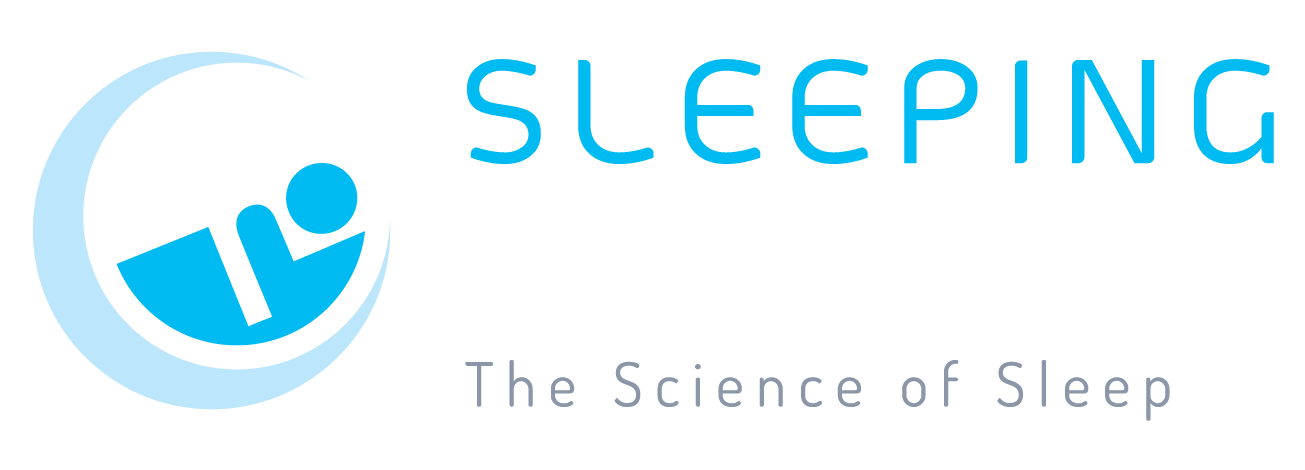
Snoring is common, and for many people it may just be a harmless bedtime annoyance. However, for others, loud or chronic snoring may be a sign of something more serious like obstructive sleep apnea (OSA). While all patients with sleep apnea snore, not everyone who snores has sleep apnea. Knowing how to distinguish between sleep apnea and normal snoring is vital for protecting your long-term health.
So, how can you tell if it’s sleep apnea or just normal snoring? The answer lies in looking beyond the noise itself and observing other signs of sleep apnea, such as daytime fatigue, morning headaches, or pauses in breathing at night. Only a thorough evaluation by a qualified sleep specialist can provide a definitive diagnosis and guide you toward the right solution.
The Difference Between Simple Snoring and Sleep Apnea
Snoring and sleep apnea may sound similar, but they are distinct conditions. While both involve disruptions in airflow during sleep, the impact on health can differ significantly. Understanding the distinction helps you recognise when snoring is harmless and when it may signal a more serious condition.
Snoring
Simple snoring happens when airflow is partially blocked during sleep, causing vibration of soft tissues in the throat. It may be disruptive, but it doesn’t significantly interfere with oxygen intake.
Common causes of snoring include:
- Relaxed throat muscles during deep sleep
- Narrowed airway or thick neck tissue
- Nasal congestion or structural blockages
- Sleeping on your back
- Alcohol or sedative use before bedtime
Simple snoring can be frustrating for partners, but it usually doesn’t carry the same health risks as sleep apnea.
Sleep Apnea
Unlike simple snoring, obstructive sleep apnea is a serious sleep disorder where the airway repeatedly collapses or becomes blocked. It is the most common type of sleep-related breathing disorder. People with obstructive sleep apnea often stop and start breathing multiple times at night, leading to oxygen drops and frequent sleep disruptions, often without realising it. If left unaddressed, OSA can increase the risk of high blood pressure, heart disease, diabetes, and stroke.
Key signs of sleep apnea include:
- Excessive daytime sleepiness or fatigue despite adequate sleep
- Witnessed breathing pauses, gasping, or choking sounds at night
- Difficulty concentrating or memory problems
- Frequent nighttime urination
- Morning headaches or a persistently dry mouth
Early diagnosis and treatment are crucial for preventing complications and improving both sleep quality and overall health. Intervention plans for sleep apnea include:
- CPAP therapy to keep the airway open during sleep
- Lifestyle modifications such as weight management and positional therapy
- Advanced medical interventions or surgical options in severe cases
With proper diagnosis and personalised treatment from a sleep specialist, patients can significantly reduce symptoms and improve overall sleep quality and long-term health.
Can I Snore But Not Have Sleep Apnea?
Yes. It’s possible to snore without having sleep apnea. Lifestyle factors such as alcohol consumption, sleeping on your back, being overweight, or nasal congestion can all contribute to snoring.
The difference is that while bothersome, simple snoring doesn’t usually cause dangerous oxygen drops or put the same strain on your heart and brain as sleep apnea. Still, if your snoring is loud, persistent, or accompanied by other symptoms, it’s best to get evaluated by a sleep specialist.
What Does Snoring Sound Like if You Have Sleep Apnea?
Not all snoring sounds the same. Simple snoring is usually steady, rhythmic, and consistent throughout the night. In contrast, snoring linked to obstructive sleep apnea often has a very distinct and irregular pattern.
People with sleep apnea may:
- Snore loudly, often loud enough to disturb their partner’s sleep.
- Have long pauses of silence when breathing stops, followed by a sudden gasp, snort, or choking sound.
- Produce snoring that fluctuates in intensity, with loud bursts separated by irregular breathing.
This disrupted pattern occurs because the airway repeatedly collapses, causing the body to struggle for breath. Bed partners often describe it as “scary snoring” because of the gasps or choking that follow silent pauses.
Is Snoring Bad? When to Seek Medical Advice
While simple snoring isn’t inherently dangerous, it can still cause restless nights for both you and your partner. The real concern arises when snoring is persistent, loud, and paired with symptoms that may indicate sleep apnea. Left unaddressed, sleep apnea can increase the risk of high blood pressure, heart disease, diabetes, and reduced cognitive performance.
If you’re dealing with occasional, light snoring, some simple lifestyle adjustments may help:
- Try sleeping on your side instead of your back
- Avoid alcohol or sedatives before bedtime
- Maintain a healthy weight to reduce airway obstruction
- Use nasal strips or dilators to improve airflow
- Keep your bedroom air clean and humidified
However, it’s important to understand that self-assessment is not enough to confirm sleep apnea. A proper evaluation by a sleep specialist is essential, as only a professional sleep study can accurately detect breathing pauses, oxygen level drops, and sleep disruptions.
Take the Next Step Toward Better Sleep

If you or your partner is concerned about snoring and suspect sleep apnea, it’s important not to ignore it. At Sleeping Lab MY, a leading sleep clinic in Malaysia, our team provides comprehensive sleep studies, accurate diagnosis, and personalised treatment plans tailored to your needs. Schedule your sleep apnea test today and take the first step toward healthier, more restorative sleep—for both you and your loved ones.

